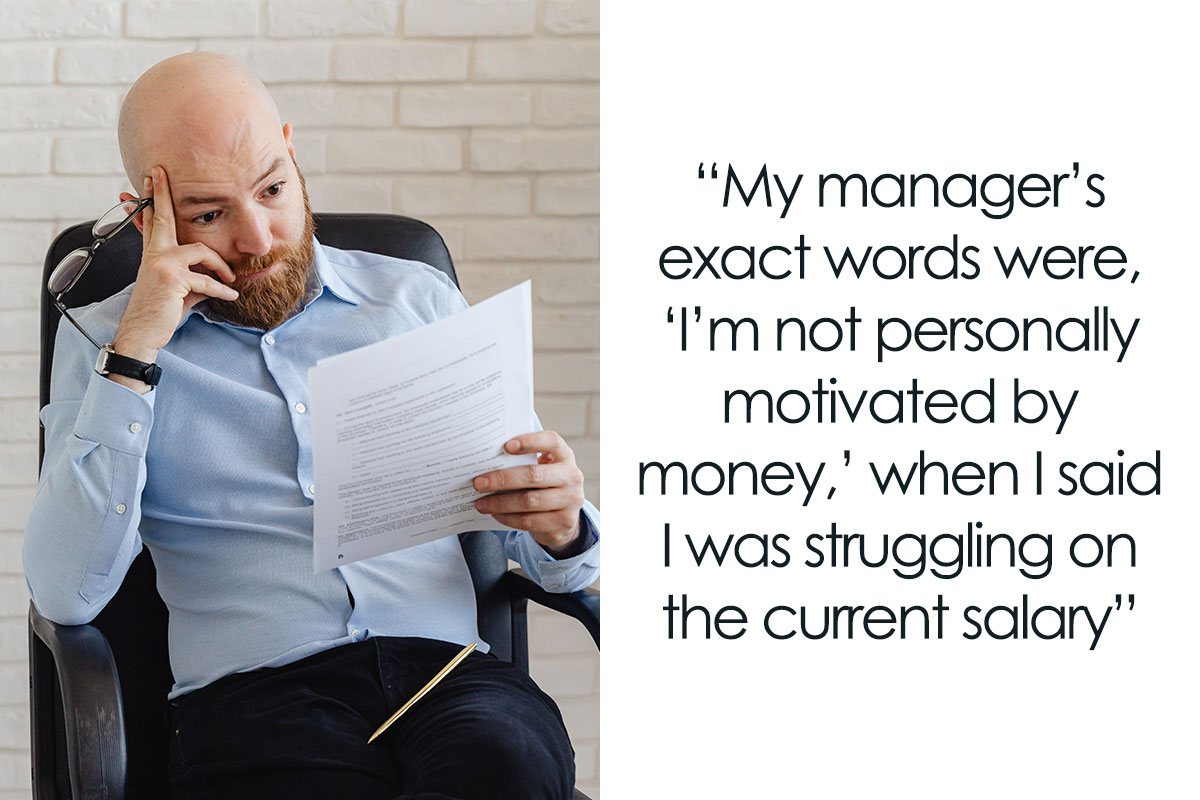
“5k? Not A Massive Difference, Then”: Boss Shames Worker For Quitting, Doesn’t Give Counteroffer
Interview With AuthorNo matter how passionate you might be about your job, you need to be practical about your finances. You need to make ends meet, so your compensation has to be fair. Not only does it have to match your skills and expertise, but it also has to take into account economic realities. If inflation’s soaring, wages have to keep up, too. Otherwise, you’ll see loyal workers looking for greener pastures.
Redditor u/Fickle_Lab_4182, from Ireland, recently went viral on r/antiwork after sharing what made them look for a new job. After landing a great position with a generous pay bump, however, the OP was treated to some subtle shaming from their former management. Read on for the full story, and to see how the net reacted to this sort of behavior.
Bored Panda got in touch with the author of the viral post, u/Fickle_Lab_4182, and they were kind enough to share their thoughts on switching jobs, the cost of living crisis, and managers who are utterly detached from reality.
It’s mind-boggling how detached from reality some managers are. They believe that if they’re not struggling, nobody else is
Image credits: Andrea Piacquadio (not the actual photo)
An employee shared how they found another job after barely being able to make ends meet. Their former superiors weren’t too happy about it
Image credits: Karolina Grabowska (not the actual photo)
Image credits: Fickle_Lab_4182
The cost of living in Ireland has gone through the roof
According to Statista, the inflation rate in Ireland was 6.1% in June, down slightly from a high of 6.6% in May 2023. Inflation had been steadily rising in the republic since late 2020, affecting grocery prices and the cost of rent.
Numbeo shares that the estimated monthly cost of living for a single person in Ireland is around €965.70, excluding rent. Meanwhile, a family of four can spend around €3,379.20 per month, also without rent. A one-bedroom apartment near the city center can cost a tenant an average of €1,436.15 per month, while a three-bedroom place can go for an estimated €2,462.92 per month.
The Expatrist notes that the average monthly rent in Ireland in the first quarter of 2022 stood at €1,567. Meanwhile, the situation in the capital, Dublin, is even worse: the average rent stood at €2,300. It’s not just rent that’s out of control, however. The Independent highlights the fact that shoppers were paying anywhere between €5 to €13 more per grocery basket in 2023, compared to early 2022.
The author of the post shared how they got a 5% raise in January. However, due to the cost of living crisis in Ireland, it was insufficient. In fact, the OP opened up about how they even had to “start dipping” into their savings to make ends meet at times.
Back in June, they asked for their wage to be adjusted for inflation, however, they were denied. That drove them to look for employment elsewhere, and they found a great position that offered a €5,000 greater annual pay bump.
However, management couldn’t resist taking their frustrations out on the OP when they handed in their notice. The redditor’s manager, for one, said that they’re personally not motivated by money. Meanwhile, the director of the company commented that a €5,000 increase was “not a massive difference.”
The cherry on top was that even though management didn’t seem to think the sum was big (or even important), they didn’t offer the OP anything to stay. No counteroffers. Nothing, just passive-aggression. Not only is that rude, but it also shows how disconnected from reality some managers really are. Telling an employee not to care about money is frivolous. Meanwhile, not caring about an employee leaving is short-sighted.
Image credits: Karolina Grabowska (not the actual photo)
“It is terrifying that I’ve had to start reaching into my savings”
The author of the post opened up to Bored Panda that they don’t have any dependents, so they’re only trying to sustain themselves. Not only that, they also have “semi-affordable” rent, compared to others living in Ireland.
“It is however terrifying that I’ve had to start reaching into my savings (built over last year) to make ends meet this year as even basic food prices have gone up. I’ve cut out most of my discretionary spending so I’d say most of my money goes towards the necessities, and I try to save whatever is left over,” u/Fickle_Lab_4182 told Bored Panda.
“I like to think I lead a fairly frugal lifestyle so while my immediate standard of living hasn’t taken a massive hit, it will undoubtedly affect me in the future as my safety net shrinks. I can’t imagine how people with dependents are getting by in this economy with inflated food and utilities costs, childcare, saving for retirement, etc. It’s scary, and then some when you have such disconnected (dare I say, greedy) people running the workplace.”
We wanted to get the employee’s thoughts on why their former superiors were so passive-aggressive and didn’t even give a counteroffer. They had a few theories about why they behaved the way they did.
“The fact that I left for a competitor might not have sat well with management, although that is hardly surprising given that it’s fairly well-known that their salaries are on the lower end of ‘the market rate’ in the industry,” the OP said that management and their competitors know this.
“Possible other reasons could include that there was a genuine disconnect from these individuals, where they believe that just because they might not be struggling, no one else should be either. At my salary, I don’t really have the luxury of being able to say that I am not motivated by money. Money does play a big part in it all when I’m trying to feed and clothe myself and keep a roof over my head,” they told Bored Panda.
Image credits: Tima Miroshnichenko (not the actual photo)
“Move on to an employer who is more inclined to treat you like a human being”
One of the post author’s hopes is to be able to afford a home of their own in the future so that they’re “not left at the mercy of unpredictable landlords.”
“The third scenario could simply be that they couldn’t match it and simply chose to get in a dig at me as a parting shot. They do, after all, have to squeeze the junior staff so they can give themselves a healthy bonus at the end of this year.”
Meanwhile, Bored Panda was curious about the advice the OP would give someone who might be too scared to look for another job. “Please, keep a close eye on your physical and mental health as these are usually the first to deteriorate, and do not be afraid to look outwards to see what else might be available in the market,” u/Fickle_Lab_4182 said.
“Time really is the only truly finite resource a person has and a [bad] employer doesn’t deserve a second more than that it should take for you to leave, especially if the option exists. If you’re a grad, be especially wary of employers who will feed you the ‘We are a family’ and ‘Everything we do is for the greater good’ narratives—these are just meant to guilt you into taking whatever peanuts they hand out and not complain,” the OP warned.
“Don’t be afraid to use them for experience as they are using you for your labor, and then move on to an employer who is more inclined to treat you (comparatively more) like a human being instead of just a resource.”
Image credits: Tima Miroshnichenko (not the actual photo)
Replacing employees who leave is very expensive. It’s far cheaper to give them a raise
For instance, in the United States alone, employees that quit voluntarily cost businesses one trillion dollars per year, according to Gallup. Hiring and training a new employee costs anywhere from one-half to two times the leaving worker’s annual salary.
Essentially, in very practical terms, it means that companies should be very concerned about voluntary turnover. It makes financial sense to try and retain capable employees rather than letting your competitors get a hold of them.
Asking for a raise essentially comes down to knowing your worth, as well as having the courage to stand up for your interests. Do some background research about what people at other companies in your position are getting paid. Document your achievements and excellent performance at work. And then gently but firmly explain to your manager that you deserve to be paid more.
Though it may be harder to ask for a raise when the company has just offered one, major circumstances like the cost of living going through the roof can force your hand. If your pay literally isn’t enough, you have no other option but to ask for more money, or to drastically cut back on your expenses. Doing both might be the right way to go if you’re in a particularly tough situation.
Though easier said than done, anyone hoping to budget better can start by finding a cheaper place to live, canceling expensive streaming and other subscriptions, and changing how they shop. Cooking at home instead of eating out, buying groceries in bulk at a discount, and using alternative protein sources to red meat can help save a few pennies.
Of course, keep in mind that all of these tips won’t help much if someone’s already following them. In their case, the only way forward is increasing their income, whether by getting a raise, a better job, pulling more shifts, or focusing on a side hustle in their spare time.
Image credits: Karolina Grabowska (not the actual photo)
The author of the post interacted with some of their readers in the comments
Meanwhile, here’s what some other internet users thought
Everyone has different motivators. For most people, a job = money. But for others, it could be time, position, or any myriad of things. I told a boss once that I valued my time with my family and that I had grown up poor, so I could get by with a job paying far less. (Crazy to say, I know but I really wanted him to understand.) I also told him that if I wasn't happy with my job, I would let him know and if the situation didn't change he would know why I quit. A year in, he wanted me to be a trainer. I refused and when he asked why not, I said "Because everyone I know who does it is miserable. Why would I want to do that?" He countered that it paid $5000 more. I explained to him that money wasn't a motivator for me (again) and he angrily left. He never really talked to me again... Long story long, a good manager learns and works with a person's motivators to keep them happy and productive.
I'm guessing you're in Dublin which from what I've heard has gone full London in terms of cost of living. It sounds like an absolute sh1tshow, you have my sympathy.
Everyone has different motivators. For most people, a job = money. But for others, it could be time, position, or any myriad of things. I told a boss once that I valued my time with my family and that I had grown up poor, so I could get by with a job paying far less. (Crazy to say, I know but I really wanted him to understand.) I also told him that if I wasn't happy with my job, I would let him know and if the situation didn't change he would know why I quit. A year in, he wanted me to be a trainer. I refused and when he asked why not, I said "Because everyone I know who does it is miserable. Why would I want to do that?" He countered that it paid $5000 more. I explained to him that money wasn't a motivator for me (again) and he angrily left. He never really talked to me again... Long story long, a good manager learns and works with a person's motivators to keep them happy and productive.
I'm guessing you're in Dublin which from what I've heard has gone full London in terms of cost of living. It sounds like an absolute sh1tshow, you have my sympathy.

 Dark Mode
Dark Mode 

 No fees, cancel anytime
No fees, cancel anytime 


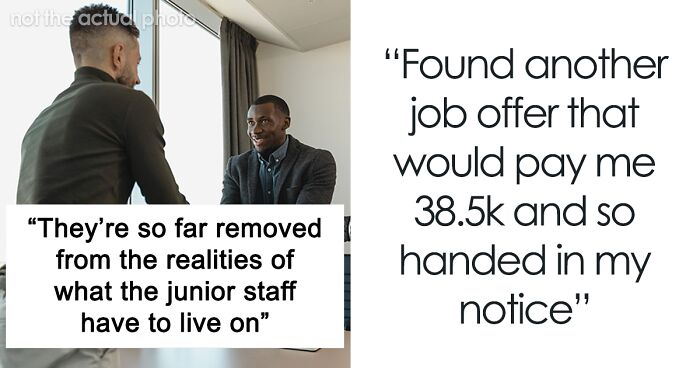











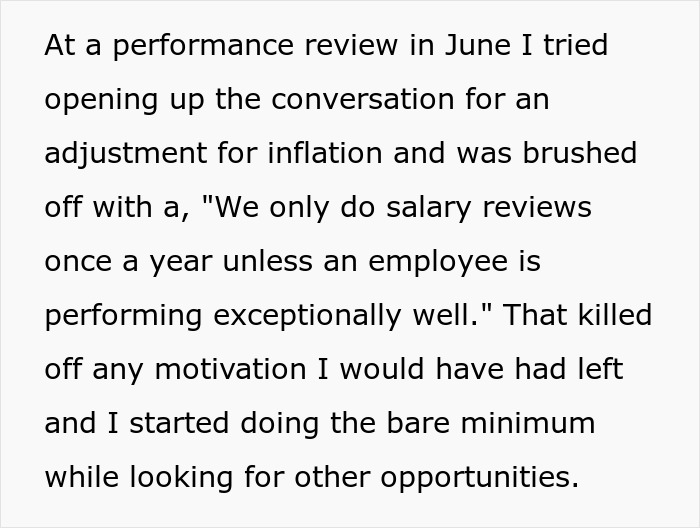
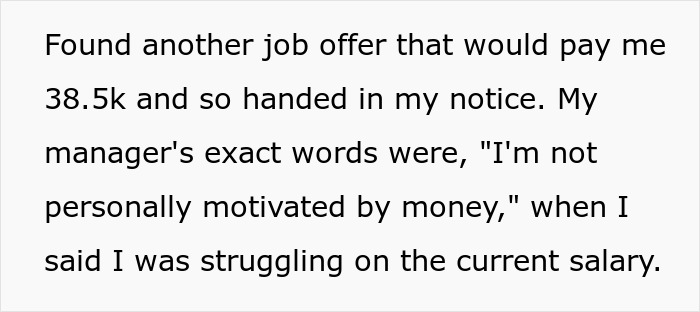


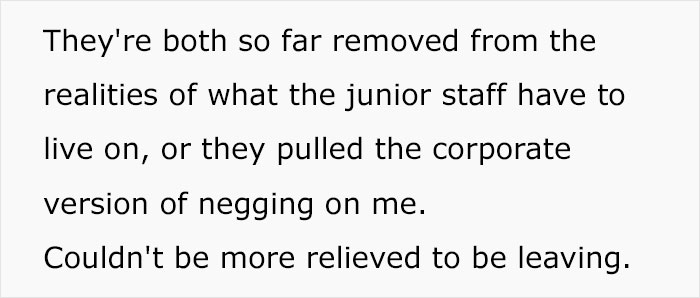












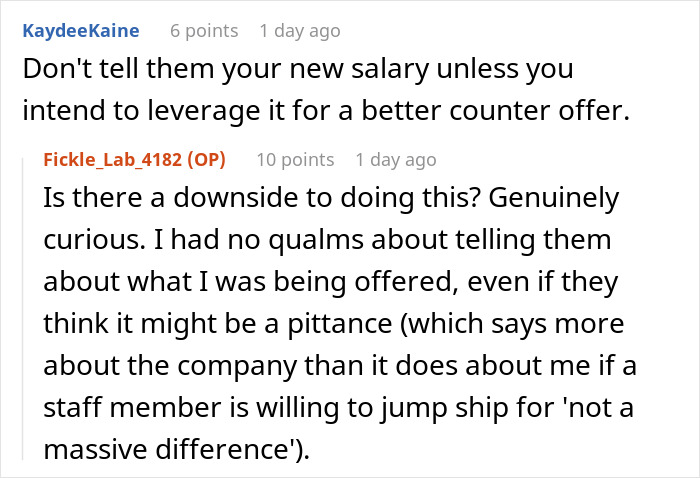


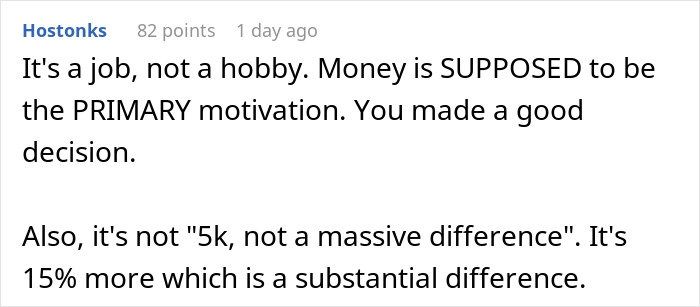

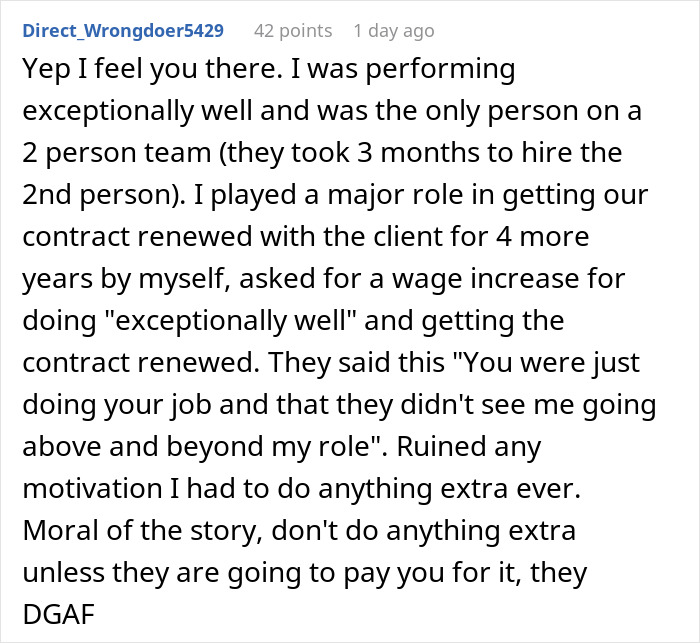








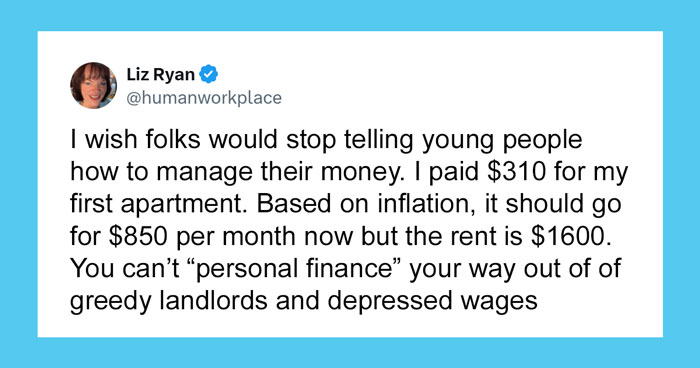



















52
19